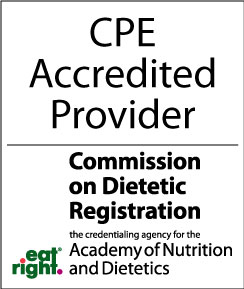12:45 PM – 2:45 PM
Boston Convention & Exhibition Center, Room 153 AB
Program Description
The current method for determining protein quality is based on the comparison of its pattern of amino acids with the requirement pattern of amino acids, after adjusting for the digestibility of the protein. Based on the model and assumptions inherent to this method, known as the Protein Digestibility Amino Acid Score (PDCAAS), limitations of the method have been recognized. The Food and Agriculture Organization (FAO), thus, convened several recognized experts to explore other methods that may better reflect protein digestibility and utilization or metabolic availability in humans. Members of that expert consultation will address topics related to these new methods as well as the relevance of protein quality assessments to diets of the global population. In addition, the practicality and challenges of these potential methods for implementation will be discussed. The goal of this session, followed by a panel discussion, is to educate and engage the scientific community to further the science of protein quality and nutrition.
Recorded Presentations:
Introduction. Ratna Mukherjea, PhD, DuPont Nutrition and Health, St. Louis, MO
Public health implications of protein recommendations. Ricardo Uauy, MD, PhD, London School of Hygiene & Tropical Medicine, United Kingdom
Protein quality to meet protein and amino acid requirements. Daniel Tomé, AgroParisTech Joint Research Unit for Nutritional Physiology and Feeding Behaviour, Paris, France
Methods for determining protein quality to support optimal health and nutrition in developing countries. Anura V. Kurpad, PhD, St. John’s Research Institute,Karnataka, India
Taking protein quality methodology into practice: Perspective of food industry. Phil Kerr, DuPont Nutrition and Health
Learning Objectives
At the end of this session, attendees will be able to:
- Differentiate the proposed methods on their ability to determine the capacity of proteins to meet needs for human nutrition.
- Compare methods’ ability to be validated from test model to human needs.
- Describe the potential challenges of implementation of new methods and implications for the food supply.
ASN designates this educational activity for a maximum of 2 CPEUs. Dietitians and dietetic technicians, registered should only claim credit commensurate with the extent of their participation in the activity.
ASN (Provider #NS010) is accredited and approved by the Commission on Dietetic Registration (CDR) as a provider of Continuing Professional Education (CPE) programs for Registered Dietitians.
Learning Level 2. Suggested Learning Codes:
2020: Composition of foods, nutrient analysis
2070: Macronutrients: carbohydrate, fat, protein, fiber, water
2000: Science of food and nutrition
4000: Wellness and public health
Please fill out the evaluation below in order to claim credit.
Click here for CPE Evaluation!
Continuing Professional Education (CPE) FAQ for Dietitians.


